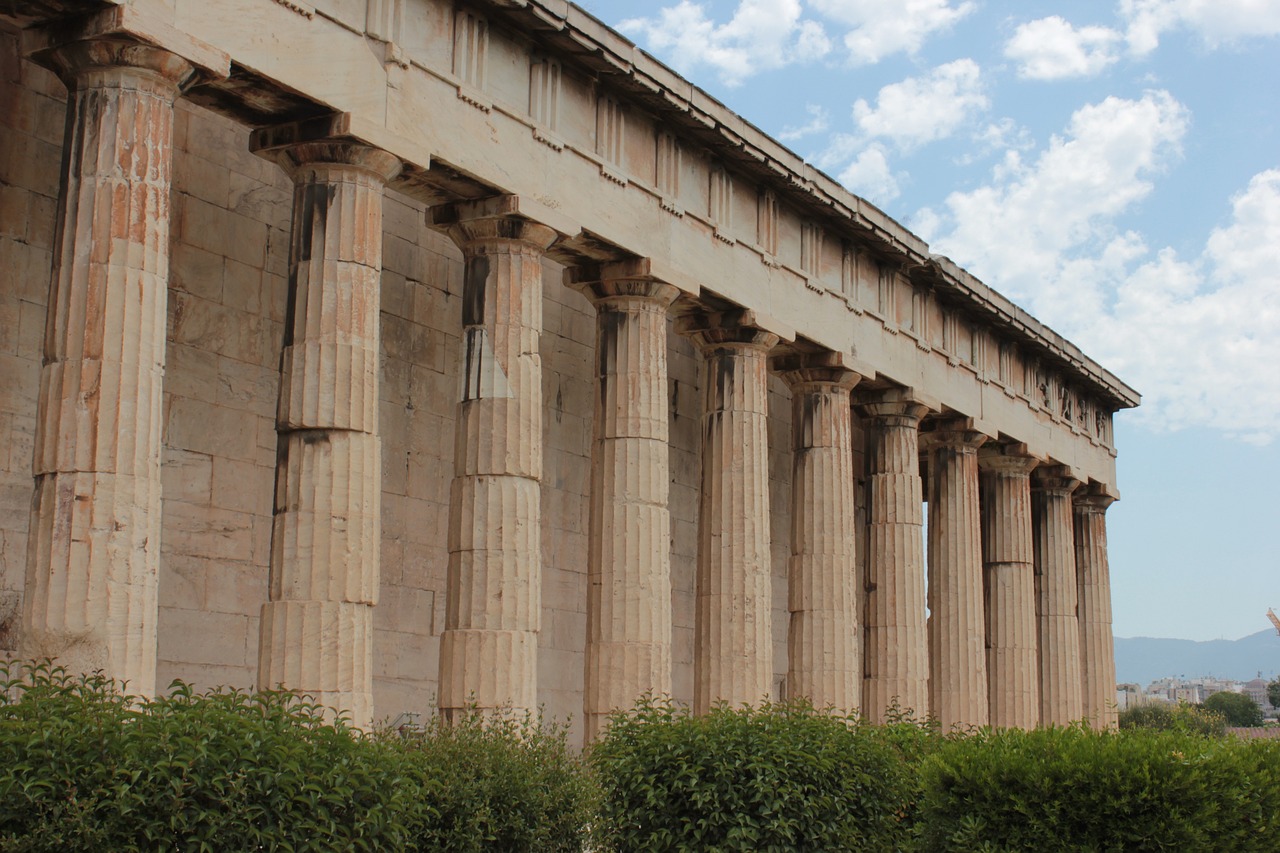Hephaestus and His Romantic Entanglements
Hephaestus, known as Hêphaistos in Greek, served as the Olympian god emblematic of fire, metalworking, craftsmanship, and stonemasonry. This ancient figure’s romantic involvements are a topic of significant narrative interest, with several connections highlighted distinctly in mythological texts. Although some of his liaisons remain largely genealogical with no elaborate tales, two of his most renowned loves include the goddesses Aphrodite and Athena. Aphrodite initially became his wife but proved unfaithful, engaging in an affair with Ares, while Athena notably rejected his advances, resulting in an accidental conception with the Earth, Gaia.
Divine Loves
With Goddesses
- Aglaea: The goddess of splendor and one of the three Graces, she married Hephaestus after his separation from Aphrodite, giving birth to divine daughters including Eukleia and Philophrosyne.
- Aphrodite: Hephaestus’s first wife, whose infidelities led to their parting. After being betrayed by her love affair with Ares, Hephaestus initiated divorce proceedings.
- Athena: The goddess of wisdom thwarted Hephaestus’s assault, which inadvertently led to her pregnancy via the Earth, resulting in the birth of Erichthonios, whom Athena took upon herself to raise.
-
Gaia (Gaea): The earth goddess was unintentionally impregnated by Hephaestus’s seed when Athena dismissed his advances.
-
Persephone: Hephaestus, along with other gods, sought to win over Persephone prior to her nuptials with Hades. Ultimately, Demeter confined Persephone away from divine suitors.
Semi-Divine Loves (Nymphs)
-
Aetna: The nymph residing on Mount Aetna, Sicily, was enamored by Hephaestus, and their union produced Thaleia.
-
Cabeiro: Another nymph from Lemnos, she bore offspring from Hephaestus known as the Cabeiroi.
Mortal Loves (Women)
-
Anticleia: From Epidauros, she mothered Periphetes, a bandit son of Hephaestus.
-
Atthis: A princess of Attika who may have birthed Erichthonios, although other accounts attribute this lineage to Hephaestus and Gaia.
-
Ocresia: A noblewoman of Rome who became the mother of Servius Tullius after her liaison with Hephaestus.
Hephaestus and Aphrodite
The Marriage of Hephaestus and Aphrodite
The union of Hephaestus and Aphrodite is derived from fragmented texts and artistic depictions like those on the François Vase. Initially cast out from heaven by Hera due to his deformities, Hephaestus was nurtured by goddesses until he developed exceptional smithing skills. To take revenge on Hera, he created a cursed throne, compelling Zeus to offer Aphrodite’s hand in marriage to the one who could bring him to Olympus. When Ares attempted to confront Hephaestus, he was repelled with a shower of fiery sparks. Eventually, it was the approach by Dionysus that persuaded Hephaestus to return to Olympus in exchange for marrying Aphrodite.
Aphrodite’s Betrayal
Despite his union with her, Aphrodite’s affections lay elsewhere, chiefly with Ares. Their clandestine love affair was revealed by Helios, inciting Hephaestus’s wrath. In an act of vengeance, he crafted an intricate chain to ensnare them both in the act, exposing them to the ridicule of the other gods, thus showcasing his clever craftsmanship.
The Aftermath of Betrayal
Eventually, Ares and Aphrodite escaped captivity through the intervention of Poseidon, who promised to guarantee Ares’s debt to Hephaestus. After this, it appears Hephaestus and Aphrodite’s marital ties were severed, seeing him move on to Aglaea, while Aphrodite continued to have furtive affairs with Ares.
Hephaestus and Athena
The Birth of Erichthonios
The circumstances of Erichthonios’s conception are rooted in complex interactions between Hephaestus and Athena. Drawn to her, Hephaestus attempted to pursue Athena, who resisted his advances. In his pursuit, his seed fell to the ground, where Athena, feeling revulsion, wiped it away, leading to the birth of the snake-like Erichthonios, whom she later safeguarded.
The Legacy of Erichthonios
A figure of significance in Athenian mythology, Erichthonios was closely tied to the grounding myths of the region, illustrating the intricate bonds between divine beings and fundamental earth components.
Conclusion
Hephaestus’s romantic endeavors reveal a tapestry of relationships that not only define his character as a god but also enrich the overarching mythological narratives of love, betrayal, and the interplay of divine and mortal entities. His entanglements with goddesses like Aphrodite, Athena, and the Earth itself underline his complexity as a figure often caught between passion and revenge.



